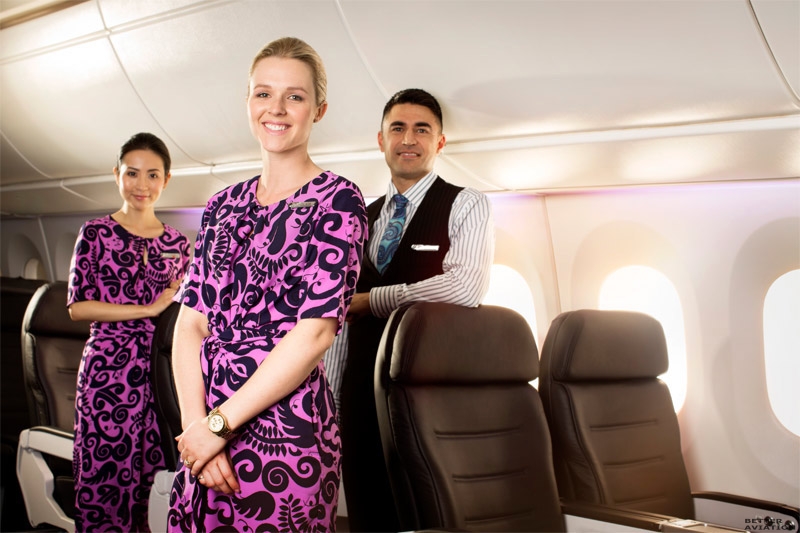The airline recently tested two different casserole dish materials, bagasse and rotable plastic, along with a birchwood cutlery alternative on four of its Rarotonga flights.
Switching to a more sustainable serviceware option has the potential to remove around 28 million single-use plastic dishes and knives, forks and spoons from inflight every year, according to Air New Zealand’s Chief Customer and Sales Officer, Leanne Geraghty.
She says now is the right time to be looking at the materials the airline uses inflight.
“The serviceware flying today was designed more than a decade ago,” she says. “With an acute awareness of the impacts of plastic pollution, we’re delivering serviceware that is designed for the culinary experiences of the future and reduces vast amounts of single-use plastic from our operation.
“We’re on a journey to reduce the impact of our serviceware on the environment by moving away from single-use plastics and trialling more sustainable serviceware across some of our international flights.

“Our Future Aircraft Cabin Experience (FACE) programme has been in motion for a number of years now, working on the future experience for our customers. COVID-19 has however, given us a chance to accelerate some of that work. We want to build back better than before and moving towards more sustainable alternatives inflight is a key focus area of our strategy.
“We looked at everything from carbon emissions to raw materials which fed into what serviceware we used in the trial, and in future, expect to roll out across our network.
“We also have plans to trial bamboo cutlery alongside the birchwood to see what works best for our customers,” she says.
Other moves Air New Zealand has taken to reduce waste and plastic include reinjecting a range of sealed and unused inflight products like bottled water, cookies and boxes of tea, which has saved more than 36 million products going to landfill.
Since 2018, the airline has also transitioned 55 million single-use plastic items to lower-impact alternatives, or removed them entirely, across its global network and ground locations.